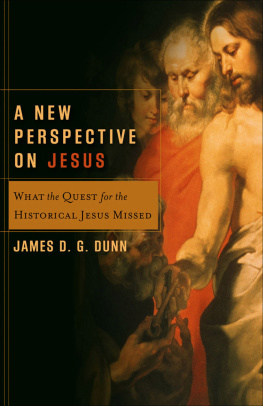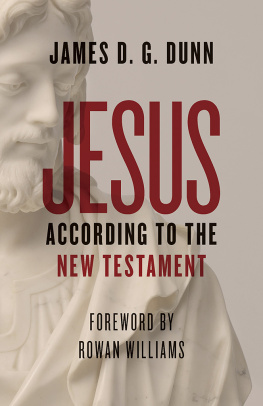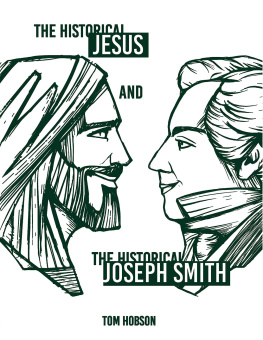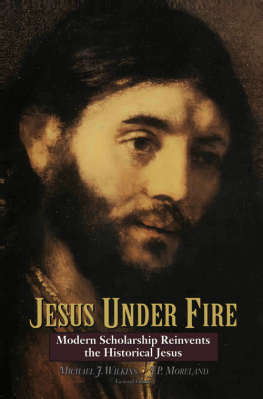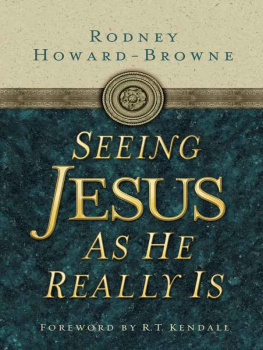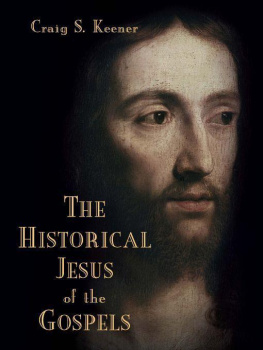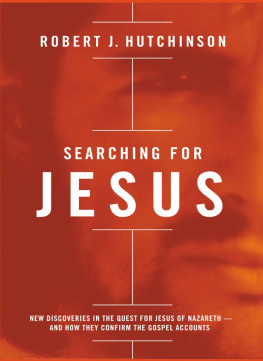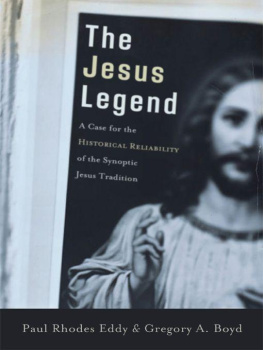

2005 by James D. G. Dunn
Published by Baker Academic
a division of Baker Publishing Group
P.O. Box 6287, Grand Rapids, MI 49516-6287
www.bakeracademic.com
Ebook edition created 2013
All rights reserved. No part of this publication may be reproduced, stored in a retrieval system, or transmitted in any form or by any meansfor example, electronic, photocopy, recordingwithout the prior written permission of the publisher. The only exception is brief quotations in printed reviews.
ISBN 978-1-58558-559-5
Library of Congress Cataloging-in-Publication Data is on file at the Library of Congress, Washington, DC.
Unless otherwise indicated, all Scripture quotations are from the New Revised Standard Version of the Bible, copyright 1989, Division of Christian Education of the National Council of the Churches of Christ in the United States of America. Used by permission. All rights reserved.
Scripture quotations labeled RSV are from the Revised Standard Version of the Bible, copyright 1952 [2nd edition, 1971] by the Division of Christian Education of the National Council of the Churches of Christ in the United States of America. Used by permission. All rights reserved.
Scripture quotations appearing in parallel columns in the appendix are the authors own translation.
Dunns call for systemic reform in the field of historical Jesus research is a must read for anyone interested in understanding Jesus significance and impact. Is it really possible to arrive at a credible, historical understanding of one who so quickly became the object of religious faith? Dunn says it is, but first we must ask why Jesus became the object of faith. By front-loading that question, Dunn turns the quest for the historical Jesus on its ear, providing new and potentially fruitful avenues for research. In this engaging book, Dunn maps out his plan in terms that are understandable, reasonable, and accessible to all who are concerned with the intersection of faith and history.
Mark Allan Powell, author of Jesus as a Figure in History
After writing remarkable works on Christology and Paul, Dunn is turning his productive energies to the historical Jesus. In doing so, he must inevitably come to terms with contemporary research on the sayings of Jesus (Q)in both moderate and exaggerated forms of that researchas well as with the results of the Jesus Seminar in California. In the process, Dunn has come to see that although the search for early, reliable, textually-transmitted material is preeminent in the construction of a portrait of Jesus, this material is liable to be misunderstood if the original context is ignorednamely, the context of a living tradition transmitted orally by disciples who had known Jesus even before the cross and Easter. Dunns careful methodological exploration of the Gospel texts is thus also a contribution to the ecumenical reconciliation of Scripture-only and tradition-over-Scripture types of Christian believers.
Benedict T. Viviano, OP, University of Fribourg, Switzerland
Acadia Studies in Bible and Theology
Craig A. Evans and Lee Martin McDonald, General Editors
T he last two decades have witnessed dramatic developments in biblical and theological study. Full-time academics can scarcely keep up with fresh discoveries, recently published primary texts, ongoing archaeological work, new exegetical proposals, experiments in methods and hermeneutics, and innovative theological syntheses. For students and nonspecialists, these developments are confusing and daunting. What has been needed is a series of succinct studies that assess these issues and present their findings in a way that students, pastors, laity, and nonspecialists will find accessible and rewarding. Acadia Studies in Bible and Theology, sponsored by Acadia Divinity College in Wolfville, Nova Scotia, and in conjunction with the colleges Hayward Lectureship, constitutes such a series.
The Hayward Lectureship has brought to Acadia many distinguished scholars of Bible and theology, such as Sir Robin Barbour, John Bright, Leander Keck, Helmut Koester, Richard Longenecker, Martin Marty, Jaroslav Pelikan, Ian Rennie, James Sanders, and Eduard Schweizer. The Acadia Studies in Bible and Theology series reflects this rich heritage.
These studies are designed to guide readers through the ever more complicated maze of critical, interpretative, and theological discussion taking place today. But these studies are not introductory in nature; nor are they mere surveys. Authored by leading authorities in the field, the Acadia Studies in Bible and Theology series offers critical assessments of the major issues that the church faces in the twenty-first century. Readers will gain the requisite orientation and fresh understanding of the important issues that will enable them to take part meaningfully in discussion and debate.
C ONTENTS
P REFACE
T he following chapters represent a vintage matured over many years and often sampled during the maturing process to check that the process was properly under way. Different aspects under a variety of titles, usually variations on Looking for Jesus, were delivered as lectures in San Antonio, Texas (1999); Uppsala (2002); Oxford (2002); and Hong Kong (2003); and as part of the Nils W. Lund Memorial Lectures, North Park Seminary, and Zarley Lectures, North Park University, Chicago (2000); the East Lecture, Lynchburg College, Virginia (2001); the Newell Lectures, Anderson University, Indiana (2002); the Thatcher Lecture, United Theological College, Sydney (2003); the Selwyn Lectures, St Johns College, Auckland (2003); and the Dunning Lecture at the Ecumenical Institute of Theology, St. Marys Seminary and University, Baltimore (2004). Simply running over these names again brings back many happy memories of good friends (old and new), of wonderful hospitality (often shared with Meta, my wife), and of interested and sometimes even enthusiastic audiences, students and others. The privilege of being granted some ability to teach and the joy of sharing insights with others, plus the stimulus of having to try to meet critical questions on points I count important and curious questions on points unexpected, made the experience wrapped up in these lectures a rich and rewarding one. I am more grateful than I can say to all who made these lecture trips possible and who gave so much of themselves to ensure that their guest(s) were as comfortable as possible.
These lectures all led up to the publication of my large-scale work Jesus Remembered (2003) , the first volume, God willing, of a projected trilogy on Christianity in the Making (27150 CE) . But I soon realized that what I regarded as the key methodological contributions made by Jesus Remembered might become lost in the scale on which I found it necessary to operate in the book. Fortunately, the invitation to deliver the Hayward Lectures, at Acadia University, Nova Scotia (November 2003), gave me the opportunity to spell out these insights more fully and to carry them further forward in the light of my continuing research. Meta and I are so grateful to our hosts, Craig Evans and Lee McDonald, for the original invitation and for the wonderful warmth of the hospitality afforded to us at Acadia.
In preparing the lectures for publication, it made sense to include the English-text version of my lecture at the Durham meeting of Studiorum Novi Testamenti Societas (August 2002), which appears as an appendix to the Hayward Lectures. The Greek-text version was published in New Testament Studies 49 (2003). The lecture is perhaps most accurately described as a prequel to Jesus Remembered , making the case in more detail than I could in the book for the need and importance for students of the Gospels to make a real effort to orient themselves to what must have been the oral character of the earliest traditions about and from Jesus. My last thanks are to Jim Kinney of Baker Academic for encouraging me to include this lecture in A New Perspective on Jesus .
Next page
